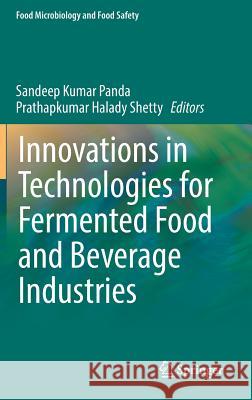Innovations in Technologies for Fermented Food and Beverage Industries » książka
topmenu
Innovations in Technologies for Fermented Food and Beverage Industries
ISBN-13: 9783319748191 / Angielski / Twarda / 2018 / 339 str.
Kategorie:
Kategorie BISAC:
Wydawca:
Springer
Seria wydawnicza:
Język:
Angielski
ISBN-13:
9783319748191
Rok wydania:
2018
Wydanie:
2018
Numer serii:
000318393
Ilość stron:
339
Waga:
0.66 kg
Wymiary:
23.39 x 15.6 x 2.06
Oprawa:
Twarda
Wolumenów:
01
Dodatkowe informacje:
Wydanie ilustrowane











